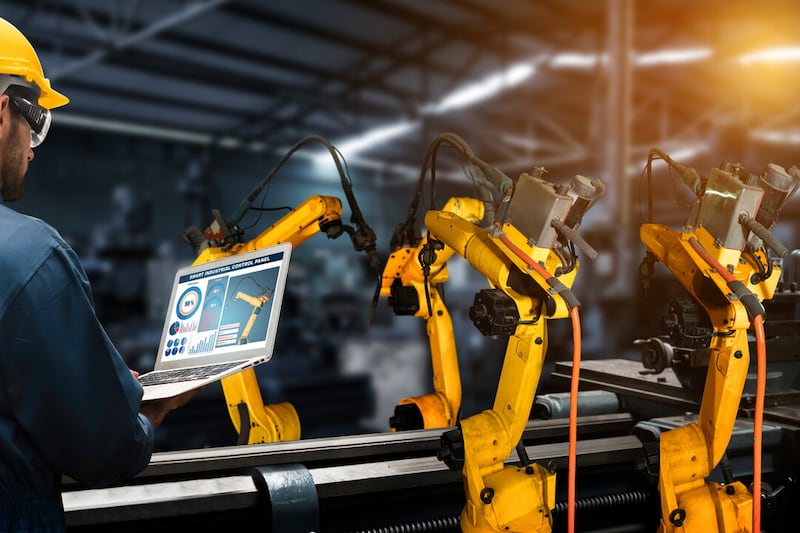'ASSUME from this day forward that you won’t be able to recruit anyone, ever again!'
That’s the guidance we’ve given to manufacturing leaders for the past 18 months.
It’s obviously extreme advice but its purpose is to challenge these leaders to think about the strategic decisions they must take.
It has a basis in fact though. We lost many of those who came to the north to work because of Brexit, and as we’re outside the EU, we no longer benefit from freedom of movement. Firms can no longer just fly in staff to fill their factories.
During Covid, many people also exited the workforce earlier than usual.
Despite that, we have record numbers of people in employment.
More fundamentally, in the past number of decades, around 80,000 - 100,000 new people typically matured into working age. This current decade, that will be less than 2,000.
These policy decisions and demographics mean that labour availability just won’t be there.
So, if we can’t recruit the people we need to work in our factories and service providers, what direction should our employers take?
Some are engaging with the UK’s new migration regime, and bringing people here particularly from India and the Philippines.
Others are doing their best with the ‘economically inactive’ and others are pushing on with reopening apprenticeship opportunities, taking the productivity hit until these people are ready to make a full contribution to the business.
But fundamentally, we are at an inflection point driven by the changing world of work.
If you can’t recruit or replace, then then the focus must be on retention.
It’s not about more, but better jobs. Not just terms and conditions of employment but investing in people and roles.
Removing frustrations, introducing wellness programmes, encouraging career progression, closer engagement and mentoring,
Factories are changing physically too. It's unlikely they'll ever replicate Google’s HQ, but many are investing in better facilities.
Some are even developing their own childcare spaces. Others have embraced and deployed automation and robotics.
What within their business can be easily and effectively delivered without people?
It may not be robotic welder for instance, but other activities in your business, which can be done by a machine rather than a person if not in whole, maybe in part.
This push for productivity has been recognised in the Department for the Economy’s workplan published at the start of the month.
They see that the success of our economy needs to be not in just creating work but creating wealth in our firms and communities.
Some firms are also investing in digitisation. We measure much of our business lives from sales to stock and cash to car mileage, which has a direct effect on its performance.
We typically just measure the size, volume, or amount of something. But the other definition of measure, is to assess the importance, effect, or value of something.
Factories are full of opportunities to collect data which, just like sales or stock can have a direct effect on the performance, productivity and ultimately profitability of the business.
We will still need people making physical things, but challenging our business leaders to rapidly redesign 'what', with 'who' and 'how' they produce, and the support government provides to helping them get there, will define our success for the years ahead.
Stephen Kelly is chief executive of Manufacturing NI








